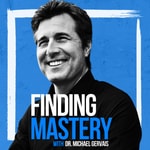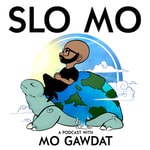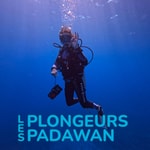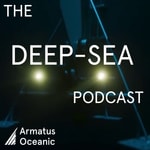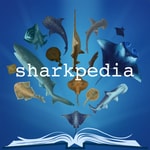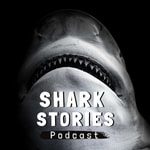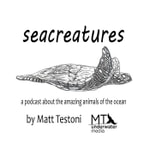World of Sharks – Details, episodes & analysis
Podcast details
Technical and general information from the podcast's RSS feed.
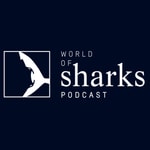
World of Sharks
Save Our Seas Foundation
Frequency: 1 episode/16d. Total Eps: 90

Recent rankings
Latest chart positions across Apple Podcasts and Spotify rankings.
Apple Podcasts
🇨🇦 Canada - nature
31/07/2025#24🇺🇸 USA - nature
31/07/2025#49🇨🇦 Canada - nature
30/07/2025#73🇨🇦 Canada - nature
29/07/2025#58🇺🇸 USA - nature
29/07/2025#72🇨🇦 Canada - nature
28/07/2025#41🇺🇸 USA - nature
28/07/2025#47🇨🇦 Canada - nature
27/07/2025#29🇺🇸 USA - nature
27/07/2025#53🇨🇦 Canada - nature
26/07/2025#90
Spotify
No recent rankings available
Shared links between episodes and podcasts
Links found in episode descriptions and other podcasts that share them.
See all- https://www.speakupforblue.com/
350 shares
- https://saveourseas.com/
142 shares
- https://www.misselasmo.org/
35 shares
RSS feed quality and score
Technical evaluation of the podcast's RSS feed quality and structure.
See allScore global : 58%
Publication history
Monthly episode publishing history over the past years.
The Importance of Linguistic Diversity in Shark Science with Jaime Penadés and Hettie Brown
Episode 69
jeudi 29 août 2024 • Duration 01:01:30
Sharks and rays are found all over the world; from the freezing waters of the Arctic to the tropical Indo-Pacific, and just about everywhere else in between. This means that shark conservation is a global effort, spanning multiple countries, cultures, customs and languages. But did you know that 98% of scientific research is published exclusively in English? In this episode of the World of Sharks podcast, we discuss how linguistic bias can limit shark conservation and the value of publishing and communicating shark science in multiple languages. We are joined by Jaime Penadés-Suay, founder and president of Associacó LAMNA, and Hettie Brown, conservation officer for The Shark Trust. Jaime and Hettie recently collaborated to organise the first 'Wikimaratón de Tiburones y Rayas' (Sharks and Rays Wikimarathon), an event that motivated people from around the world to expand and improve information about elasmobranchs on the digital encyclopedia, publishing over 100 articles in Spanish!
You can read more about Wikimaratón de Tiburones y Rayas here: https://wikimedia.es/mas-de-100-articulos-sobre-tiburones-y-rayas-enriquecen-la-wikipedia-en-espanol/ and here: https://www.sharktrust.org/tiburones-y-rayas
You can also follow the project on Instagram: @rayas_y_tiburones
You can also follow Jaime (@jaimepenades) and LAMNA (@lamnaassociacio) on instagram. You can find Hettie on X/twitter (@hettiemermaid) and The Shark Trust on both instagram (@thesharktrust) and X/twitter (@sharktrustuk)
You can find out more about the Save Our Seas Foundation by heading to www.saveourseas.com or by following us on instagram (@saveourseasfoundation) and X/twitter (@SaveOurSeas).
Regional Endothermy: The Secret Superpower of the Mackerel Sharks with Dr Haley Dolton
Episode 68
jeudi 15 août 2024 • Duration 01:02:49
Did you know that some sharks can keep parts of their body warm to allow them to move faster, swim for longer, see more clearly and think better?? Or, that basking sharks have a gigantic heart?! This week we are diving into the fascinating world of shark physiology and anatomy to learn about a special trait only found in a handful of species: regional endothermy. To take us on this journey of discovery we are joined by Dr Haley Dolton, marine biologist specialising in the physiology and ecology of large, regionally endothermic fishes!
Shownotes: www.saveourseas.com/worldofsharks/podcast
You can follow Haley on X/Twitter (@haleydolton) or head to her website, www.haleydolton.com
You can find out more about us by heading to www.saveourseas.com, or following us on social media. We are @saveourseasfoundation on Instagram and TikTok, and @SaveOurSeas on X/Twitter.
Could climate change affect baby sharks? With Noémie Coulon
Episode 59
jeudi 4 avril 2024 • Duration 49:57
The ocean is warming at a rapid pace. This year (2024) began with the highest global Sea Surface Temperature (SST) on record, and scientists are already warning of mass coral bleaching events and other worrying consequences for marine life. But how could rising temperatures impact sharks, particularly in the early stages of life when they are most vulnerable? PhD student and “mother-of-sharks” Noémie Coulon is trying to understand the effects of ocean warming and acidification on baby sharks, using an egg-laying species – the small-spotted catshark – as an example. In this episode, we follow her work as she raises catsharks in the lab, testing the effects of different environmental conditions at key stages in their development.
Follow along with Noémie's work on twitter (@noemie_coulon) and instagram (@noemie.coulon.9).
Shownotes: www.saveourseas.com/worldofsharks/podcast
The mystery of Charlotte, the pregnant stingray with Dr David Shiffman
Episode 58
jeudi 21 mars 2024 • Duration 41:15
In February 2024, a round stingray from a small, rural aquarium in the middle of a shopping mall unexpectedly took the world by storm. She was pregnant, but how this had happened was a complete mystery - there were no male stingrays in the tank, nor had there ever been...
In this episode we are joined by scientist and science communicator Dr David Shiffman (@whysharksmatter) to examine Charlotte's case. We go deep into the various theories that could explain Charlotte's pregnancy to get to the bottom of what really happened. No, a shark did not get a ray pregnant, but what did happen is even more fascinating. It's a good excuse to take a deep dive into the more unusual methods of shark and ray reproduction, including the super cool zoological phenomenon that is parthenogenesis!
You can find out more about David here https://davidshiffmancv.com/, find his book here https://www.press.jhu.edu/books/title/12267/why-sharks-matter and read his article on Charlotte for Southern Fried Science: https://www.southernfriedscience.com/no-a-shark-did-not-get-a-stingray-pregnant-but-what-really-happened-is-pretty-cool/
Shownotes: www.saveourseas.com/worldofsharks/podcast
Tackling the fin trade with CITES with Luke Warwick
Episode 57
jeudi 7 mars 2024 • Duration 55:15
The international shark fin trade is a billion-dollar industry. It is also driving declines in shark populations around the world. In this episode, we are joined by Luke Warwick, expert in global shark policy, to learn how CITES - an international agreement between governments to regulate trade in endangered species - could help protect sharks and rays from overexploitation. In particular, we discuss a landmark vote that occurred in 2022, which saw 90% of the fin trade come under regulation almost overnight. Luke walks us through what has happened in the year since, from getting the vote passed to implementing the new regulations at local level. And, we discuss some of the trials and tribulations of trying to get 100+ countries to agree on something, especially when most of them have a vested interest...
You can learn more about Luke and his work with the Wildlife Conservation Society on twitter (@WCSsharks) and here https://www.wcs.org/our-work/wildlife/sharks-skates-rays. You can also check out the shownotes for this episode here www.saveourseas.com/worldofsharks/podcast
For more sharky content, find us on social media! We are @saveourseasfoundation on instagram, and @SaveOurSeas on twitter.
The acoustic world of sharks: how do they hear? With Dr Lucille Chapuis
Episode 56
jeudi 22 février 2024 • Duration 57:21
Do sharks have ears? Are they good listeners? What are they listening for? Do great white sharks get freaked out by orca sounds? And what kind of music do sharks like?! We cover all this and so much more with bio-acoustician and shark hearing expert, Dr Lucille Chapuis. Join us for a fact-filled episode that includes disco sharks, curious humpbacks, putting sharks in 'sleepy-time baths' and R2D2 with a throat problem.
You can follow Lucille on twitter (@sharkslikejazz), instagram (@lucillechapuis) and via her website, www.sharkslikejazz.com.
If you liked this episode, please consider giving us a rating and a review. You can get in touch with the podcast by emailing isla@saveourseas.com, or via social media (@saveourseasfoundation on instagram, @SaveOurSeas on twitter).
Going back in time with shark skin! With Dr Erin Dillon
Episode 55
jeudi 8 février 2024 • Duration 01:00:24
Time travel. Ancient coral reefs. Shark sleuthing. The AMAZING properties of shark skin...this episode has it all! We're chatting with Dr Erin Dillon, conservation paleobiologist and researcher at the Smithsonian Tropical Research Institute. Erin's work uses fossilised shark skin (fancy term: dermal denticles) as a window into the past, to understand what kinds of sharks were around on coral reefs thousands of years ago and how that has changed over time. It's a fascinating deep dive into shark life before humans made their mark, and an insight into what healthy reefs could look like with a little bit of help.
You can follow Erin's work by heading to her website, http://erinmdillon.wordpress.com, or by following Erin on social media (@erinmdillon).
You can find the shownotes for this episode here www.saveourseas.com/worldofsharks/podcast and find us on social media, we are @saveourseasfoundation on instagram and @SaveOurSeas on twitter.
Why have sharks been so successful? With Dr James Lea
Episode 54
jeudi 21 décembre 2023 • Duration 58:44
It's our 50th episode!! To celebrate, host Isla is joined by shark scientist and CEO of the Save Our Seas Foundation Dr James Lea to talk about the amazing evolutionary success of sharks and their relatives. We talk about just how much sharks have had thrown at them over the 440 million years they've existed on this planet (super volcanoes, ice ages, the terror of plants and a mass extinction event called the 'Great Dying'!) and discuss their super-powered adaptations and efficient body plans. Plus, we answer a listener question: how can I get my friends into shark conservation?
Shownotes: www.saveourseas.com/worldofsharks/podcast
You can find us on instagram (@saveourseasfoundation) and twitter (@SaveOurSeas).
How do I build a career in shark science? Featuring the guests of season 4!
Episode 53
jeudi 7 décembre 2023 • Duration 53:41
Starting out on your own career journey can be a little daunting, which is why we’ve put together this special episode of World of Sharks, filled with advice, experiences and anecdotes from the guests of season 4. We talk about how to make your dreams of working in shark science and conservation a reality – from how to approach professors, to finding your niche, to overcoming setbacks and staying true to yourself.
You can find additional resources in the shownotes: www.saveourseas.com/worldofsharks/podcast
You can keep track of when our grants and funding opportunities are announced by following us on social media, we are @saveourseasfoundation on instagram and @SaveOurSeas on twitter!
How might pollution impact sharks? With Franco Cristiani
Episode 52
jeudi 23 novembre 2023 • Duration 53:24
Plastics. Oil spills. Industrial chemicals. Herbicides. Pesticides…the list of substances that we have dumped in the sea is endless. But scientists are only just beginning to understand the true extent of the impact of marine pollutants on marine life. Fish biologist and SOSF project leader Franco Cristiani is investigating the effects of harmful pollutants on chondrichthyans, using the American elephant fish (a chimaera) as a model species. We invited Franco onto World of Sharks to discuss this important research and learn about the potential consequences of marine pollution on the reproductive health, immune function and overall survival of sharks and their relatives. And, of course, we take some time to talk about the gloriously weird and funky American elephant fish!
Shownotes: www.saveourseas.com/worldofsharks/podcast
Find out more about Franco and his project here: https://saveourseas.com/project-leader/franco-cristiani/ and follow him on twitter (@franco_c89).
You can also follow us on instagram (@saveourseasfoundation) and twitter (@SaveOurSeas).

